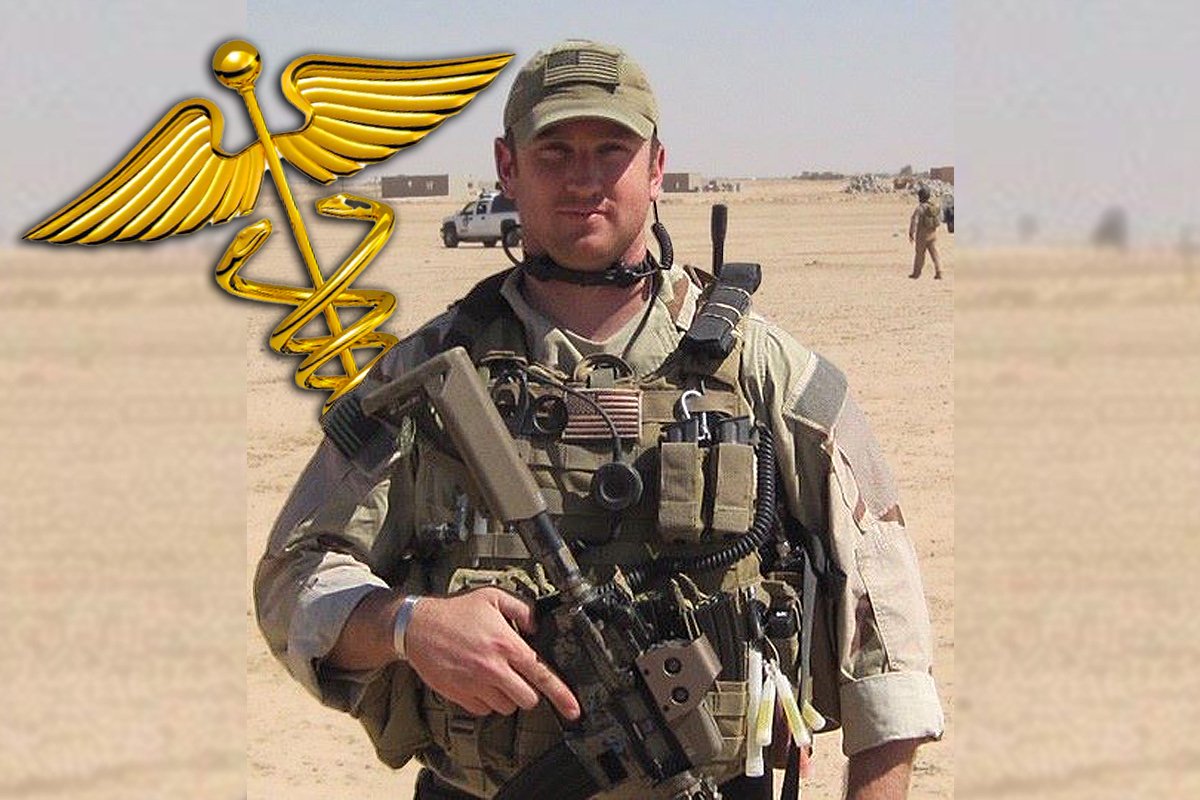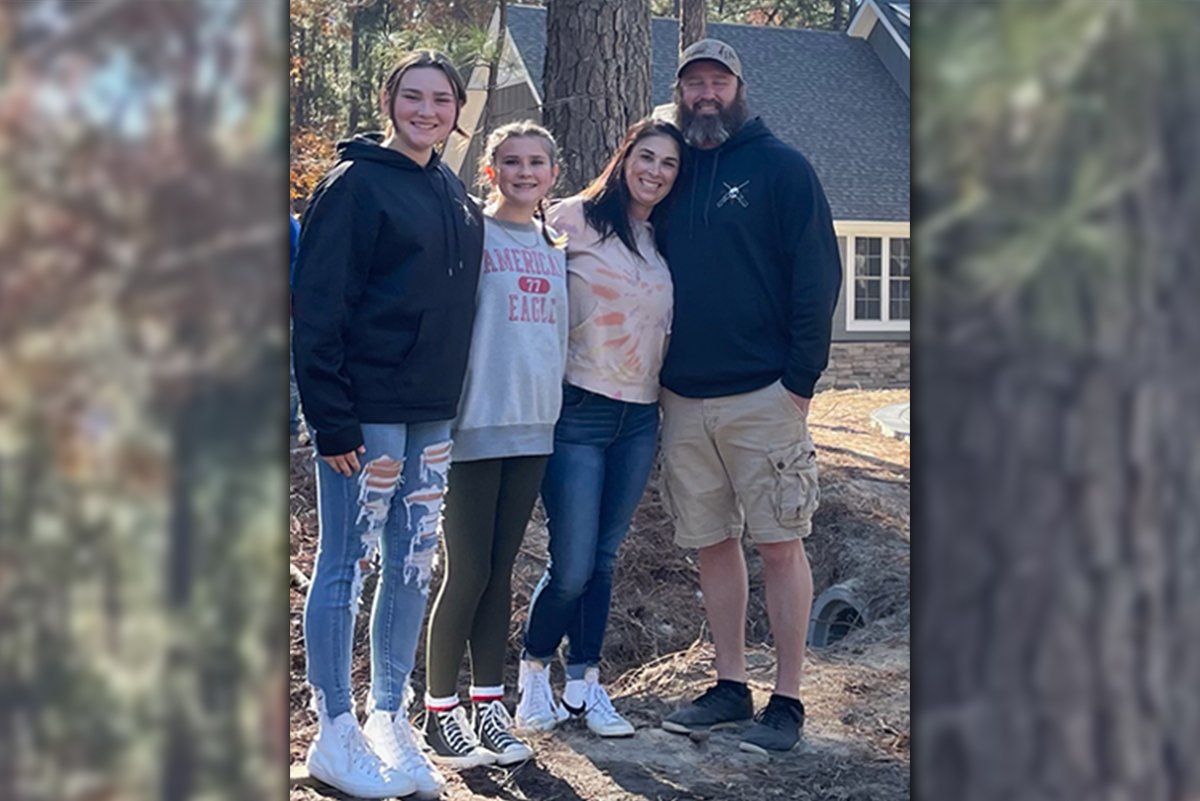Military Medical Malpractice Claims Hang in Limbo Despite New Law

Richard Stayskal forever changed how the military must handle medical malpractice. Now he waits to see whether those changes will ever take effect. Composite by Coffee or Die Magazine.
Master Sgt. Richard Stayskal has spent 20 years in the military, much of that time as a Green Beret, fighting for his country. For the past five years, he has been fighting for the military to finally pay him for the alleged medical malpractice he suffered while in its care. Despite the success of legislation that carries his name, he continues to fight.
“For a long time there, I was like, ‘Oh man, people care, people have faith, people just want to do good,’” Stayskal told Coffee or Die Magazine. “And now I’m sitting here three years later going, ‘Does anybody really care, or was it a show for votes or something?’”
Army doctors missed the cancerous growths in Skayskal’s lungs when he completed a full physical in January 2017 shortly before beginning dive school. He spent months and months coughing up blood, passing out, and losing his vision, and he was ultimately dropped from the dive course. All the while, doctors at Womack Army Medical Center told him he merely had walking pneumonia.
In June 2017, Stayskal finally saw a civilian doctor, who immediately diagnosed him with stage 3A lung cancer. That doctor told Stayskal that the progression of the disease could have been different if he had been diagnosed in January and that all the signs were present on his original scans.

The Richard Stayskal Military Medical Accountability Act, which was included in the 2020 National Defense Authorization Act, required each branch of the military to create a mechanism whereby service members who suffered medical malpractice while on active duty could sue for restitution. This was a workaround for a longstanding legal principle known as the Feres doctrine, which holds that active-duty service members cannot sue the US government under the Federal Tort Claims Act.
The new rule states that the adjudication of claims will follow the parameters of the Federal Tort Claims Act but will be administered by judge advocates in each military branch. The malpractice in question must have occurred in a Department of Defense medical center, inpatient hospital, or ambulatory care center, and the malpractice must have been committed by a covered DOD health care provider. Claims must be filed within two years of the malpractice in question. This was extended to three years for claims filed in 2020 for events in 2017, essentially grandfathering Stayskal’s claim into the system.
Payments of up to $100,000 will be distributed directly from the Department of Defense, whereas larger payments will come from the Department of the Treasury. Any damages will be offset by payments from other programs, such as group life insurance, death gratuity, the survivor benefit plan, and Department of Veterans Affairs disability compensation.
But according to Stayskal’s lawyer, Natalie Khawam, no claims have yet been approved even under these strict provisions.
“Nothing has been paid yet, unfortunately,” Khawam told Coffee or Die.

The DOD did not respond to Coffee or Die’s multiple requests for comment, but a DOD representative told news station WTVD-11 in December 2021, “The interim final rule allowing certain medical malpractice claims by Service members was published in the Federal Register on June 17, 2021, and became effective July 19, 2021. The Military Departments are currently adjudicating claims that have been filed since January 1, 2020, including issuing decisions on claims.”
Regarding his interactions with the lawmakers who supported the passage of the bill, Stayskal said that “the updates I usually get are, ‘We’re submitting questions,’ or, ‘We’re waiting for this NDAA to get through, we’re so busy with other things.’
“If you stamped your name on it and you’re not wholeheartedly fighting for this to be finished, I’m not sure why anybody put their name behind it. I hate sounding like that, but at this point, it’s like, convince me differently.”
At the moment, Stayskal’s health remains steady.
“My body is still responding well to my medicine, so I’m stable for now, which is good,” he said. But the cancer has progressed to stage 4 and is terminal.
He is looking forward to his chance to spend more time with his wife and two daughters after he retires from the Army in June, but he worries about their financial future living solely on his pension.
“It’s not that I can’t go find a job, but what job can I find that’s going to be cool with the fact that I’m going to have days where I don’t feel well, or I have treatment?”

Stayskal’s wife, Megan, now works for Khawam Ripka, the law firm that represents Stayskal and approximately 100 other families suing the Defense Department for medical malpractice. Many of the claimants reach out to Stayskal for support.
He said he tries his best to give the families hope and assure them policymakers were working as hard as they could. But sometimes, the words feel like a lie. “I know there are people who care. But are they the right people in the right positions?”
Stayskal believes the law will be implemented at some point. He just has no idea when that will be or whether he will live to see it.
“In 10, 15, 20 years, nobody will ever think twice about it,” he said. “But right now, it’s very real. It’s very serious for the individual lives.
“I always just hope that people are putting themselves in our shoes.”
Read Next:

Maggie BenZvi is a contributing editor for Coffee or Die. She holds a bachelor’s degree in political science from the University of Chicago and a master’s degree in human rights from Columbia University, and has worked for the ACLU as well as the International Rescue Committee. She has also completed a summer journalism program at Northwestern University’s Medill School of Journalism. In addition to her work at Coffee or Die, she’s a stay-at-home mom and, notably, does not drink coffee. Got a tip? Get in touch!
BRCC and Bad Moon Print Press team up for an exclusive, limited-edition T-shirt design!
BRCC partners with Team Room Design for an exclusive T-shirt release!
Thirty Seconds Out has partnered with BRCC for an exclusive shirt design invoking the God of Winter.
Lucas O'Hara of Grizzly Forge has teamed up with BRCC for a badass, exclusive Shirt Club T-shirt design featuring his most popular knife and tiomahawk.
Coffee or Die sits down with one of the graphic designers behind Black Rifle Coffee's signature look and vibe.
Biden will award the Medal of Honor to a Vietnam War Army helicopter pilot who risked his life to save a reconnaissance team from almost certain death.
Ever wonder how much Jack Mandaville would f*ck sh*t up if he went back in time? The American Revolution didn't even see him coming.
A nearly 200-year-old West Point time capsule that at first appeared to yield little more than dust contains hidden treasure, the US Military Academy said.












